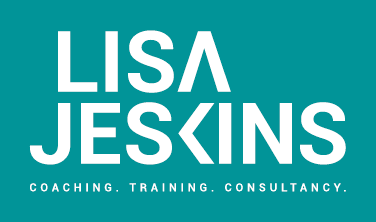Or please do what I say and not what I do.
Photo Credit: Rik Goldman via Compfight cc
Slightly tenuous link to feedback in a reverb sort of way/Gratuitous electric guitar shot.
Obviously you’re going to read your feedback. (otherwise there is no point in asking for it) However I’d say give yourself a good hour if not an entire day before you read it. I can never wait a day. But it really is a good idea to give yourself a little time to get some perspective and not feel quite so emotionally attached to the training session you’ve slogged over.
Don’t obsess over criticism or negative comments. Which I do every time. My friend Gil gets really cross with me. I said to her “I did some sessions recently and 1 person out of 57 didn’t like it”. Gil says “Really? So out of that, you’re choosing to take on board the one negative comment and not the 56 positive ones?” I can see her point. And intellectually I KNOW I’m never going to please everyone, but I do gravitate to thinking longer about the negative comments.
And in someways that’s good – particularly if it’s constructive criticism, I’ll take anything away if it will make my courses better. But sometimes people just won’t like your style. It might clash with their learning style. They might be having a bad day. They might have been forced to come. They might have really NOT wanted to learn about what you were training them in. (Quite common with social media training), they might be incredibly stressed out and busy and not feel that they have the time to come to a training session. They might be having problems at home. It could be all of the above. With students, they might not understand why they need you yet or be overwhelmed with the changes in their lives.
The thing to do is to see how many people have put negative comments and look at what they have actually said. Is it only one person? Are they making a good point? If not then it could be attributed to the reasons above. Particularly if it’s at odds with all of your other feedback from the session.
Don’t beat yourself up over one piece of negative feedback.
I don’t mean you should ignore it, it is feedback after all and this person felt strongly enough to write it down – but try look at it from an unbiased perspective and don’t get bogged down in one person’s view point. But do think to yourself, if you weren’t the trainer would you agree? Or what do you think you could change about your training? Would changing your course to meet that person’s needs make it better for everyone, or just that person?
Feedback helps you to reflect on your training so you can make it better. Particularly if it’s more than one person telling you that they didn’t like it. Or more than one person making the same point, then obviously you need to closely look at where you might be going wrong.
If you are getting negative comments, you could get a colleague to come in and watch you train and peer review it for you. Or ask what sort of feedback everyone else gets. See what it is they are doing? Can you learn from them?
Is it something to do with the timing of the training? So for example, we all know how difficult it is to do an IL session when the students haven’t been given any assignments yet. It feels abstract and vague and ‘why am I here?’ Instead of being relevant and just in time. (I know getting IL sessions rescheduled into the academic calendar is easier said, than done.)
Or do you need to manage expectations more? It’s simplistic, but an old adage of training is ‘tell them what you’re going to tell them, tell them, and then tell them what you’ve told them’. People do need an explanation of what they are going to do and it’s best to link it with why. What will being on this training do for them, to make their life better? I’ve found it useful to discuss with people in the room what they are expecting from the day, we can then all agree on what we’re going to do together. (sometimes known as contracting )
(I realise that in large groups getting every individual to tell you what they expect to learn from the day, will take up all of your time, but you can signpost clearly what you are going to do.)
Try to think about feedback as a positive tool that will enable you to improve. The more you train, the better you will become and the more feedback you get, the better you will train. Feedback helps you to reflect on the courses that you provide and will let you know if you’re getting anything wrong. But most importantly… it lets you know when you’ve done a good job.
“Lisa’s delivery was excellent – her enthusiasm was infectious and it lent to a very enjoyable afternoon.”
and how brilliant is that? Honestly, best feeling in the world.

